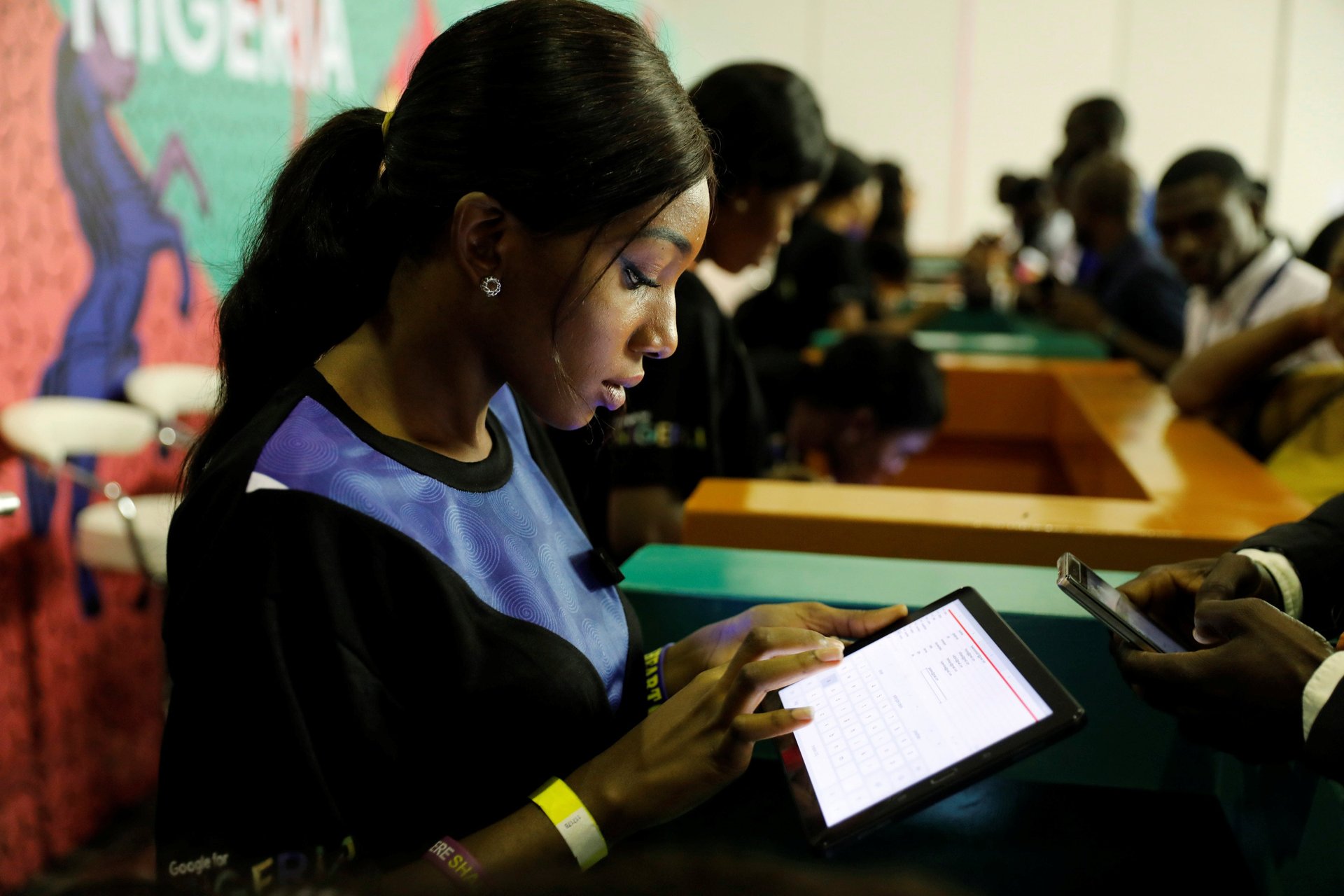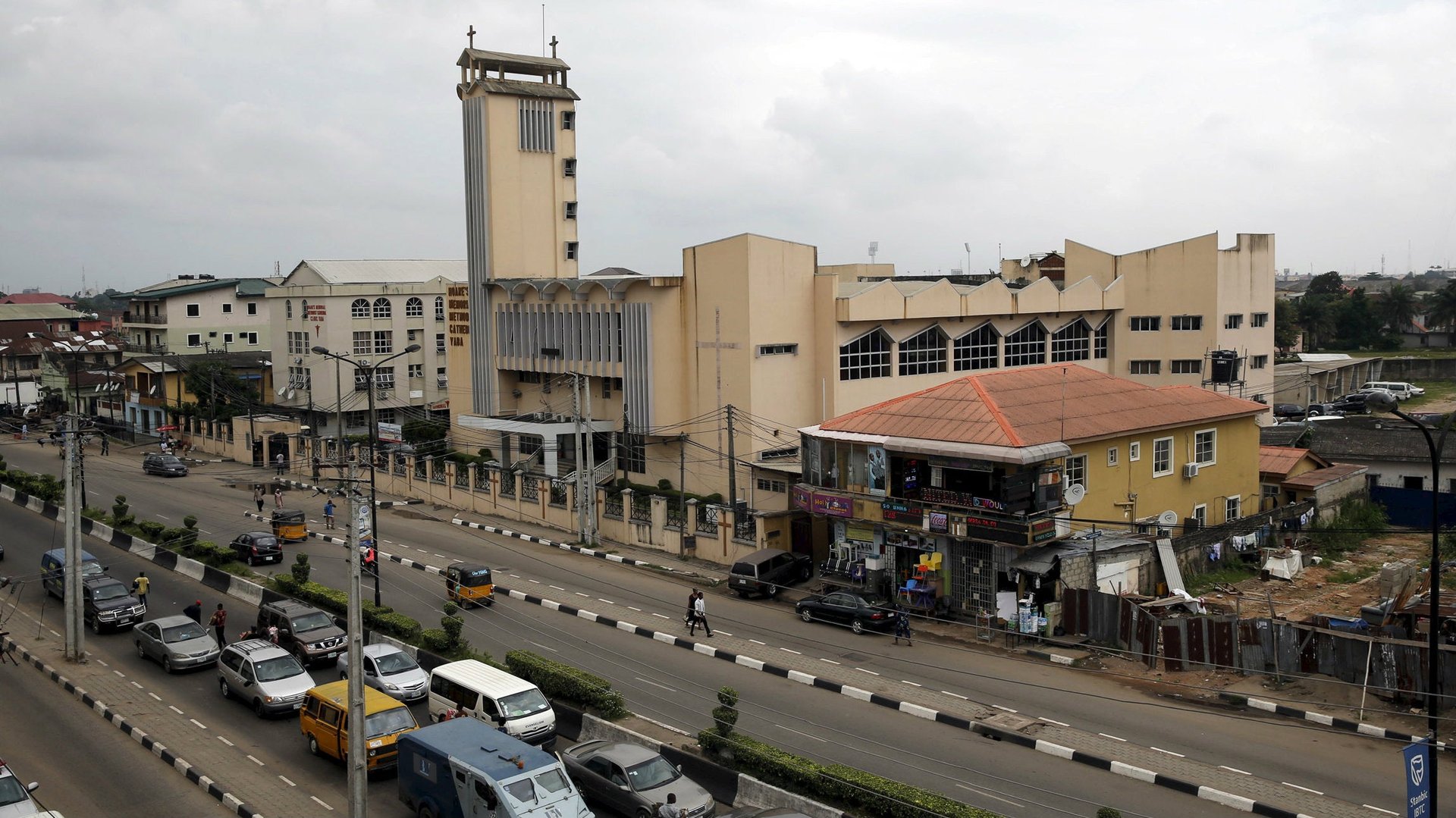Nigeria’s new broadband access plan is doomed to fail unless it fixes a perennial problem
It takes an average of just over seven hours to download a five-gigabyte movie file in Nigeria.


It takes an average of just over seven hours to download a five-gigabyte movie file in Nigeria.
With a mean download speed of 1.56 megabits per second (Mbps), Africa’s largest internet market is rooted in the bottom quarter of global broadband speed rankings for 2019 by UK analytics firm Cable. But the country is looking to fix that problem—at least on paper.
A new national broadband plan is aiming to deliver download speeds of at least 25 Mbps in urban areas (10 Mbps in rural areas) with “effective coverage” across 90% of the population by 2025. For context, as of last year, Madagascar was the only African country with speeds higher than 10Mbps—the minimum speed required for consumers “to fully participate in a digital society” according to Ofcom, UK’s telecoms regulator.
There’s some hope that the increasing number of underwater cable projects across Africa will boost internet penetration in Nigeria. Facebook and Google already have plans underway to encircle the continent with high-capacity undersea cables. In particular, Google’s cable named Equiano (after 18th century Nigerian writer and abolitionist Olaudah Equiano), will have 20 times the capacity of the most recent projects in the region, and will branch out first on Nigeria’s coast.
But while that’s good news by itself, there are other stumbling blocks in the way.
One of those are “right of way” charges which individual state governments demand from telecoms operators and internet providers before they can lay infrastructure, including fiber-optic cables. Despite a 2013 recommendation to slash those charges, most states have either kept them in place or hiked them. The net effect is that it is more expensive for service providers to set up infrastructure to boost internet coverage and speed in these states, several of which are far away from major urban centers.
Yet, there’s some hope for course correction.
Ekiti, one of Nigeria’s smallest states by landmass, has broken ranks and cut its right of way charges by 96%. The state, which is about 200 miles from Lagos, says it will now cost 145,000 naira ($374) to lay a kilometer of broadband cables in the state, down from 4.5 million naira ($11,600). The long-term play for the southwest state, particularly known for its high literacy rates, is that the lower costs attract both service providers and businesses, and results in full broadband penetration by 2021.
The Yaba Effect
States that do not follow Ekiti’s example remain myopic about “the value-add of broadband access,” says Gbenga Sesan, tech entrepreneur and digital rights campaigner. “[It’s] either because they have no clue how digital opportunities add to their internally generated revenue or because they are not here for all that development work.”
For evidence of what’s possible, these states can look to Madagascar, the country with the fastest internet speeds in Africa, which has grown into a global digital outsourcing outpost for the Francophone world, creating an industry of nearly 250 business processing and outsourcing companies which employ over 10,000 people.
But there’s another example closer to home: Yaba, the old Lagos neighborhood, known for its late colonial-era architecture, which is now regarded as the birthplace of Nigeria’s modern-day tech industry.
“What turned Yaba into ground zero for tech startups was a decision to zero-rate charges and Main One laying cable directly to Co-Creation Hub,” says Iyin Aboyeji, founder of Future Africa Fund, in reference to the decision by the Lagos government to waive right of way charges for a 27 kilometer internet cable project in the area in 2013.

Even though a Co-Creation Hub count showed that around 60 tech startups were based in the Yaba area within 12 months of the internet project (up from less than 10 previously) Bosun Tijani, co-founder of the hub, insists the impact of the project scaled beyond Yaba. An overarching benefit, Tijani explains, is that in fostering Yaba’s success story, the internet project allowed the cluster serve as a catalyst for innovation and startups elsewhere across the country. “It is one of the things that you can point to that unlocked the startup movement in Nigeria,” he says.
As Nigeria looks to deliver on its latest broadband plan, a key part of its success will lie in convincing state governments of the obvious economic benefits of playing the long game of capital investment rather than seeking short-term gain. “After the cost of people and rent, the next big cost most tech companies face is the cost of internet,” Aboyeji says. “If you’re reducing those costs, you’re opening up your state as a place where founders can build companies.”
Sign up to the Quartz Africa Weekly Brief here for news and analysis on African business, tech and innovation in your inbox